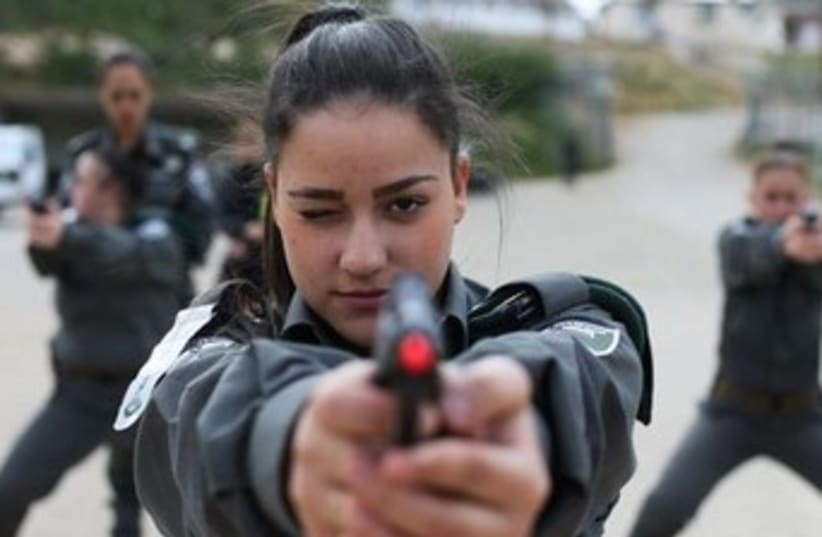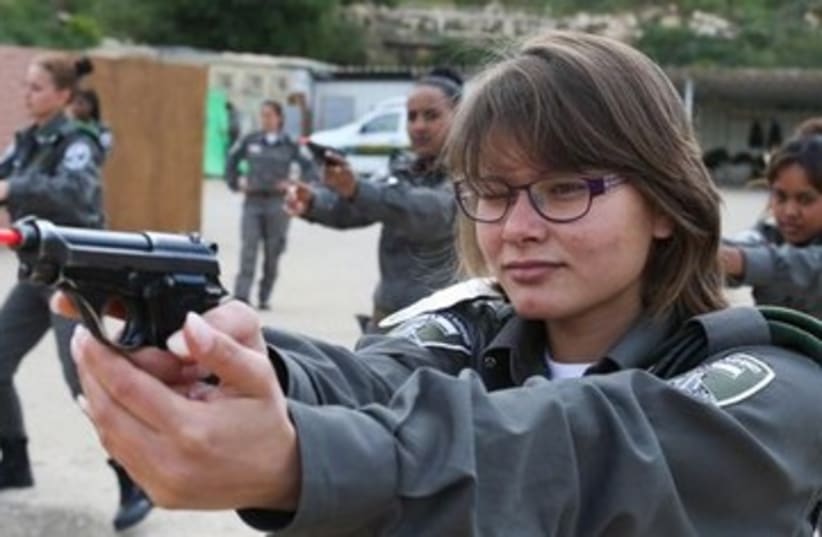
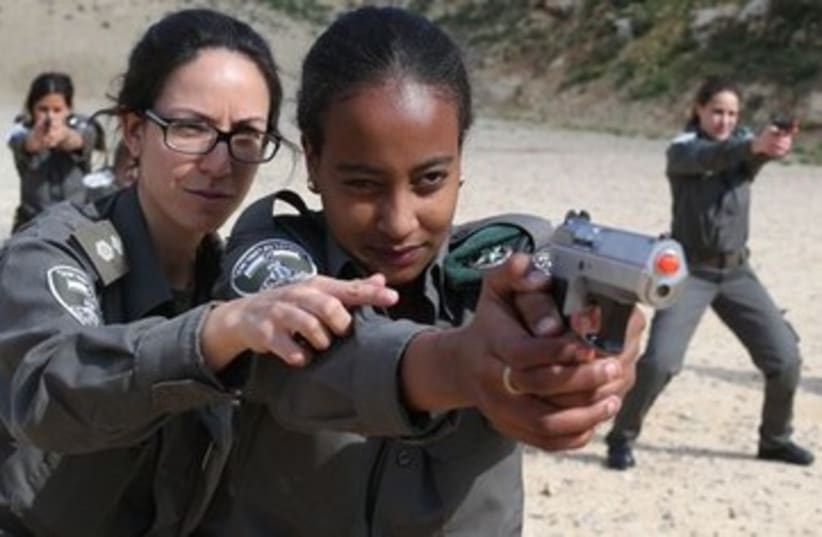
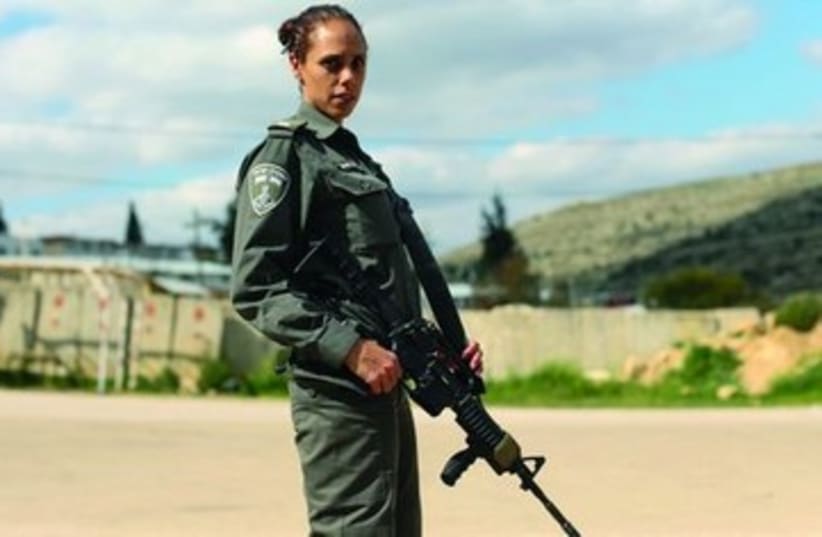
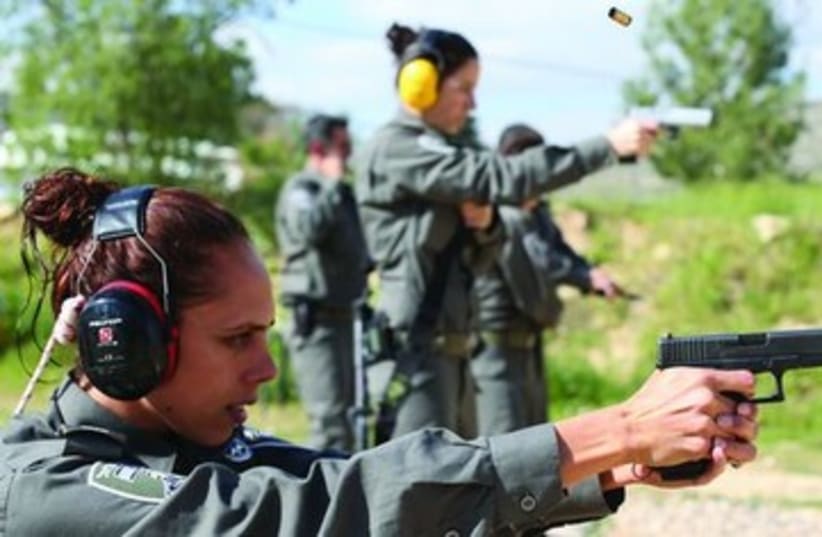
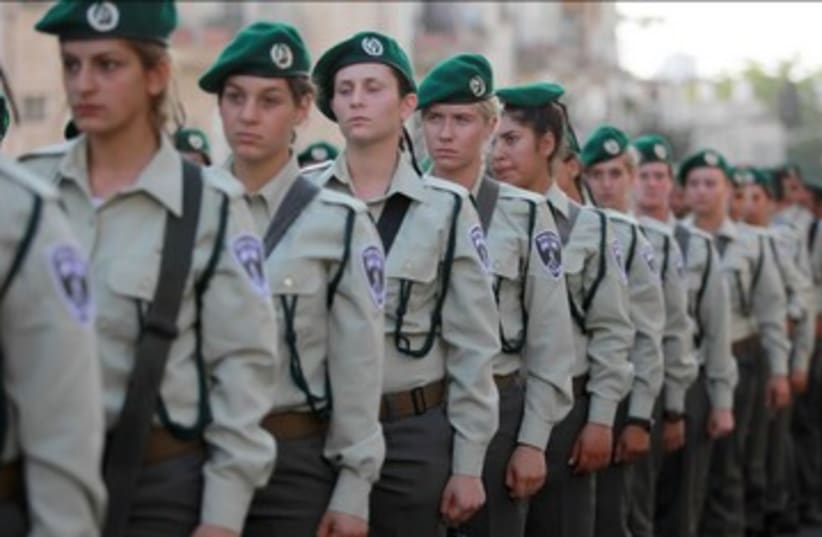
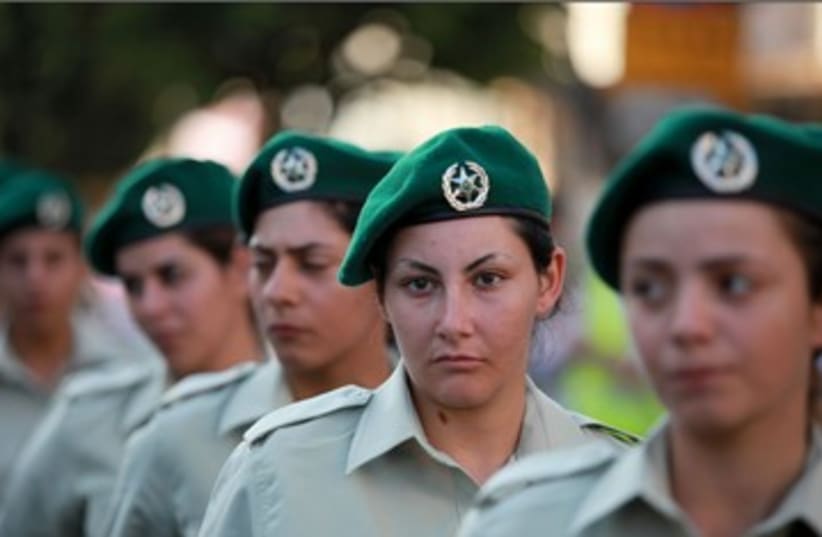

The policewoman asks him to disembark, and the youth becomes even more agitated. A quick search of his bag soon reveals a concealed flick knife. "It's not mine", he tells the officers, a claim he soon follows up with a series of explanations which only serve to make the police officers more suspicious. He first says that someone had planted the knife without his knowledge, then that he had apparently picked up the wrong bag, and finally that the knife is solely for peeling oranges. "Moments such as these are the essence of our work", says Avital Mizrahi, one of the two policewomen on that bus. She heads a team that is part of a new Border Police unit set up in Jerusalem eight months ago. "Every one of those illegal entrants to Israel has the potential to carry out a terror attack, be it a stabbing, running people down or setting off explosives. I want to believe that thanks to our work, we have managed to thwart more than a few terror attacks or other serious acts of violence in Jerusalem." It's been almost a year since eight women serving in a Border Police unit abandoned their post at the Tomb of the Patriarchs, claiming discrimination. For a long time, the Border Policewomen had resented their low status in the different units in which they served, claiming that they were being assigned solely to guard duty while their male counterparts were receiving combat missions. Furthermore, there had not been opportunities for the policewomen to receive officer training or participate in other professional courses, and that rebellion at the Tomb of Patriarchs was the embodiment of something they were all feeling. They felt inferior, jealously eying the women combat soldiers. Not all the women serving in the Border Police complete their two years of service there, and some choose to take on clerical roles. Nonetheless, since the rebellion, the Border Police has undergone an internal revolution. From being an organization known as a bastion of masculinity and with a reputation for violence, since July 2012, the Border Police has had an independent women-only unit, equal and operational. They operate independently - patrol the streets of Jerusalem, take part in searches and arrests and assist in catching criminals on the run. But their primary mission is to prevent illegal entry into Israel. Every month, company commander Linor Levi presents arrest rates 30 percent higher than of those units made up solely of their male counterparts. They have confiscated large knives, knuckle dusters and spikes, making the capital city safer. The success of the unit is no secret in the organization, and women soldiers assigned to mixed units have been asking to join. The history of the Border Policewomen begins in the mid-90s. In the wake of the first intifada and swayed by the wave of terror attacks hitting Israel, women soldiers were recruited to the Border Police and deployed among the combat Border Police units in Jerusalem and Hebron. Their primary role was to check cars and buses arriving from the Palestinian territories, and to show a presence in locations that were of strategic importance or heavily populated.The change in approach to the Border Policewomen came from the then head of the Border Police, Yoram Halevy, now the commander for the Israel Police's southern region. Halevy, who had served in the police counter-terrorism unit and headed its undercover unit, saw the potential in the women in the Border Police; within two months of the walkout at the Tomb, the women-only unit was ready to go, receiving missions that had hitherto been the sole domain of the male-only units. Veteran Border Policewomen Ravit Capiloto was at the peak of her service when she was invited to serve in the new unit. "Originally I served in one of the units in Jerusalem and I felt that I wasn't being utilized," she explains. "I was a static commando, someone situated in one place, never moving, seeing the other fighters patrolling in jeeps and doing active duty while I was left behind. I felt irrelevant, and realized that I would get nowhere in my present position. I decided to give up, and I asked for a clerical job. I told myself that this would be how I completed my military service." But then things changed for Ravit and the other Border Policewomen. "When they first told me about the unit eight months ago, I was doubtful. I wasn't convinced that it would change anything. I was wrong. Everything has changed. We are equal and operate exactly like female combat soldiers. We patrol on foot, check suspects and even take part in pursuit of suspects wanted for questioning. There's no pulling rank, seniority versus youth. Everyone does everything." Pulling into the Border Police training camp in Beit Horon, the bus full of policewomen draws the eye of the new recruits. Their surprised gaze follows the young women clad in the grey-green uniforms and army boots as they march confidently toward the shooting range, a part of a three-day training session that includes instruction in Krav Maga, physical fitness and mission simulation. Within minutes, the shooting range resembles a training camp for an elite unit, complete with handcuffs, pepper gas and personal weapons. Every one of the women looks like a little Rambo, albeit with their hair tied back. They pull out their guns, yell out battle cries, crawl on their hands and knees, and, still moving, fire at the targets. "Today we are more aware," stresses Ravit. "I'm no longer waiting for them to come to me – we are finding our own work. The girls aren't satisfied with a swivel of the head during patrols, they are constantly on the alert so that no suspect escapes their notice, and civilians feel secure when they are around." Translated by Sara Miller.
